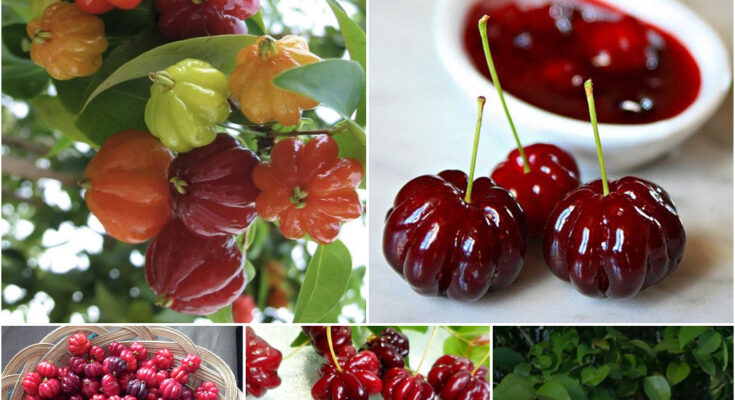Delightful Surinam Cherries: A Tropical Symphony of Taste and Elegance
In the realm of tropical delights, the Surinam cherry (Eugenia uniflora) stands as a jewel, adorning landscapes with its vibrant colors and tempting flavors. Native to tropical regions, this petite fruit, also known as Pitanga or Brazilian cherry, embodies a unique combination of exotic elegance and delightful taste.
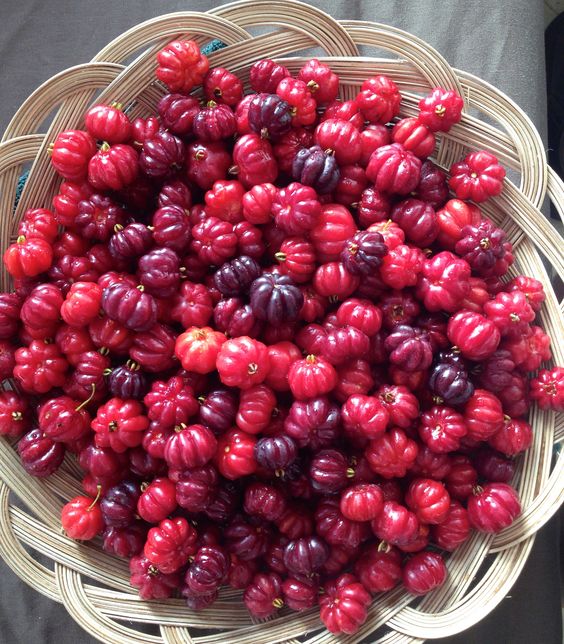
The Surinam cherry tree, with its glossy green leaves and slender branches, serves as a picturesque backdrop for the star of the show – the petite, lantern-shaped fruit. As it ripens, the Surinam cherry transforms from shades of green to hues of brilliant orange and red, creating a visual symphony that hints at the delectable experience within.
One of the most alluring aspects of Surinam cherries lies in their sweet and tangy flavor profile. The taste is a harmonious blend of tropical notes, with hints of sweetness reminiscent of traditional cherries and a subtle tartness that adds a refreshing twist. This dynamic flavor profile makes Surinam cherries a versatile ingredient, suitable for both sweet and savory culinary creations.
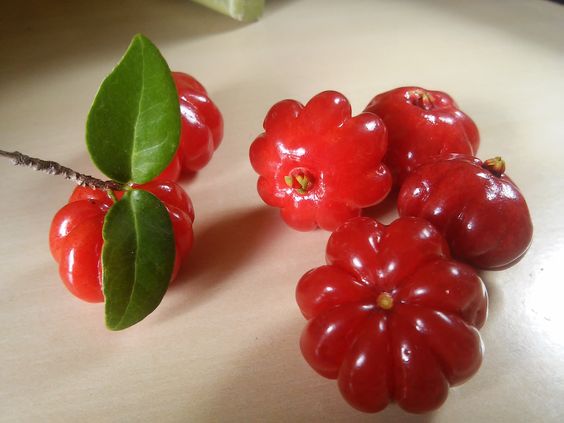
Surinam cherries have found their way into various culinary traditions, adding a burst of exotic flavor to an array of dishes. From jams and jellies that capture the essence of their sweetness to savory sauces that elevate seafood and meat dishes, the Surinam cherry’s culinary versatility knows no bounds. The fruit’s juice, with its vibrant red hue, is also a popular base for refreshing beverages and cocktails.
Beyond their culinary appeal, Surinam cherries boast a nutritional profile that adds to their allure. Packed with antioxidants, vitamins, and minerals, these petite fruits contribute to a healthy diet while satisfying the palate. The rich content of vitamin C and other beneficial compounds enhances their status as not just a delicious treat but a nutritious addition to one’s lifestyle.
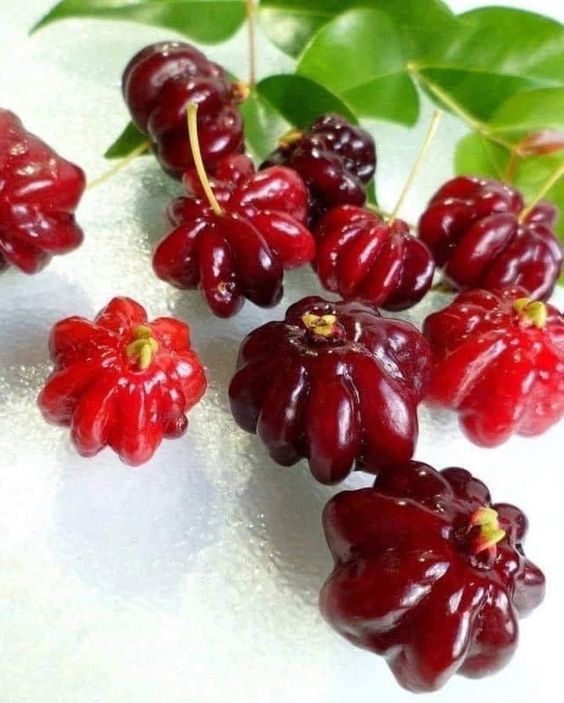
The Surinam cherry, with its distinctive flavor and elegant appearance, has become a cherished ingredient in various cultures around the world. In addition to their culinary applications, the fruits are often enjoyed fresh, providing a burst of tropical sweetness with each bite. The act of plucking Surinam cherries from the tree becomes a sensory experience, as the aroma of the ripe fruit fills the air.
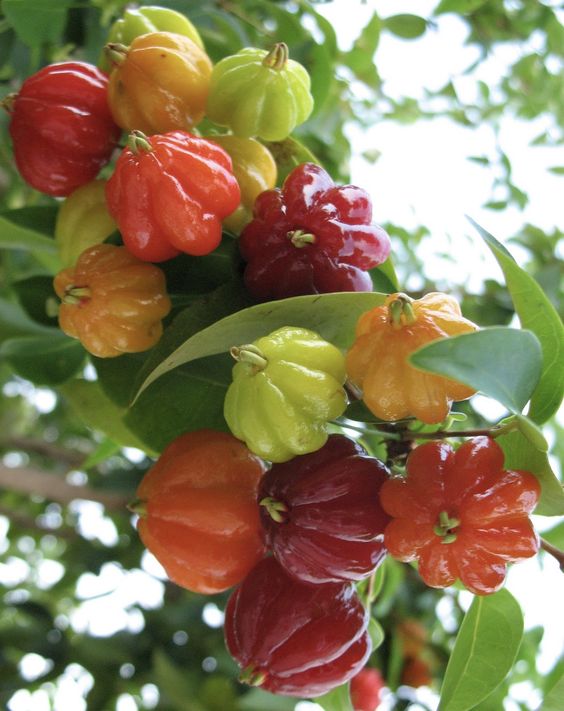
In gardens and landscapes, the Surinam cherry tree adds a touch of exotic charm. Its compact size and ornamental appeal make it a popular choice for both backyard orchards and decorative plantings. The evergreen foliage, fragrant blossoms, and colorful fruit contribute to its year-round visual appeal, creating a sense of tropical elegance in diverse climates.
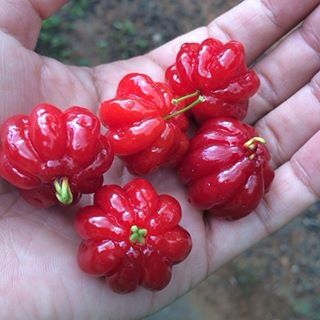
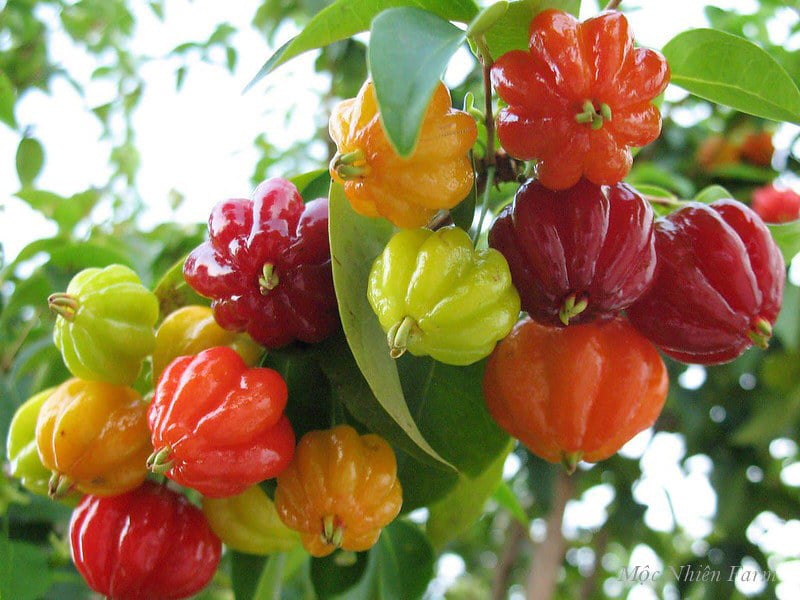
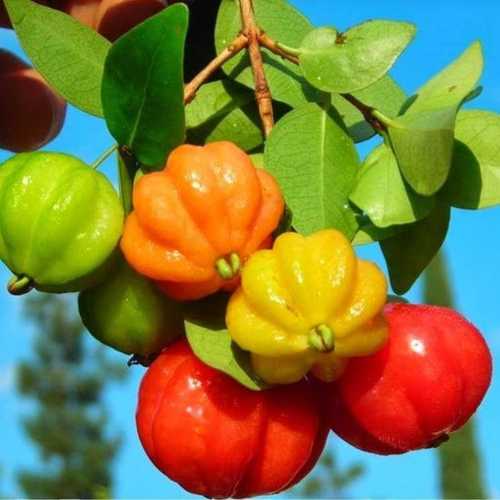
As the world continues to embrace diverse and exotic flavors, the Surinam cherry stands as a testament to the richness found in nature’s orchards. With its sweet and tangy taste, vibrant hues, and nutritional benefits, the Surinam cherry invites enthusiasts to embark on a culinary journey that celebrates the beauty and flavors of the tropics.
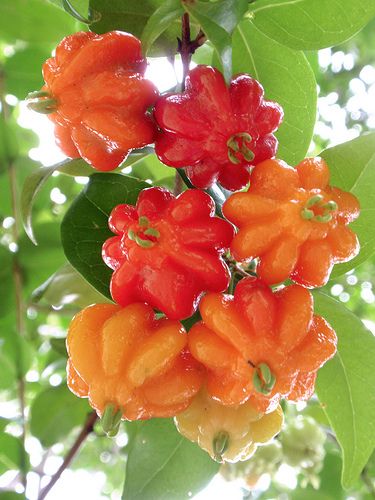
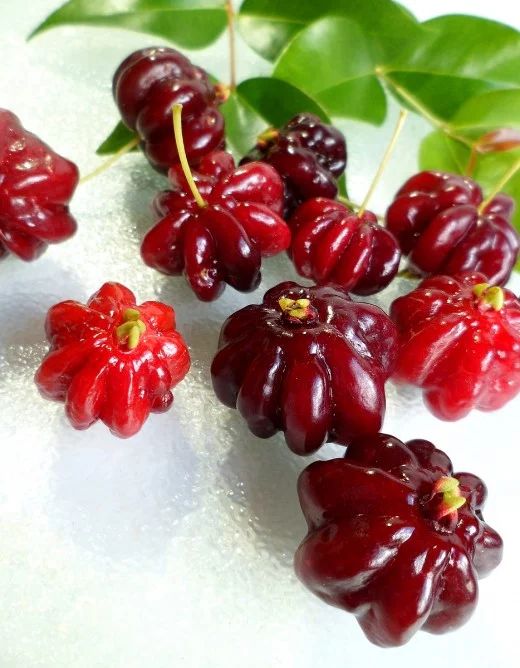
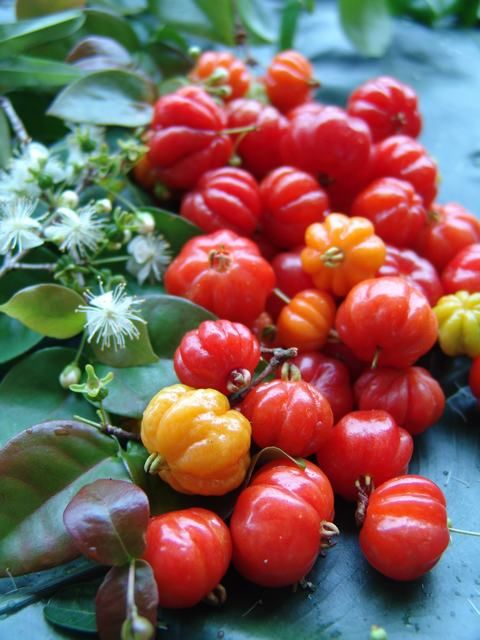
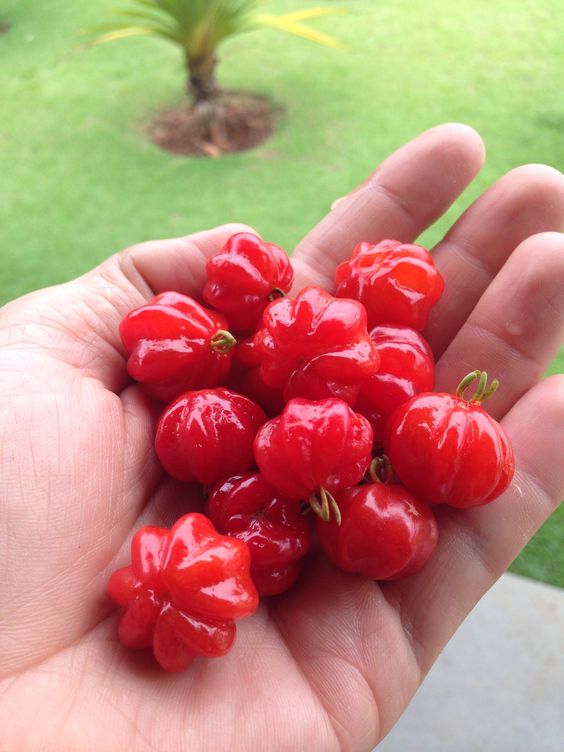
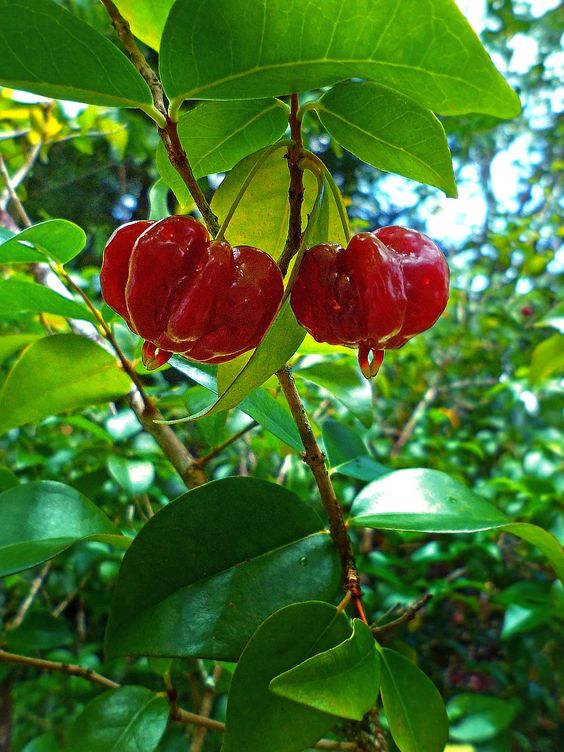
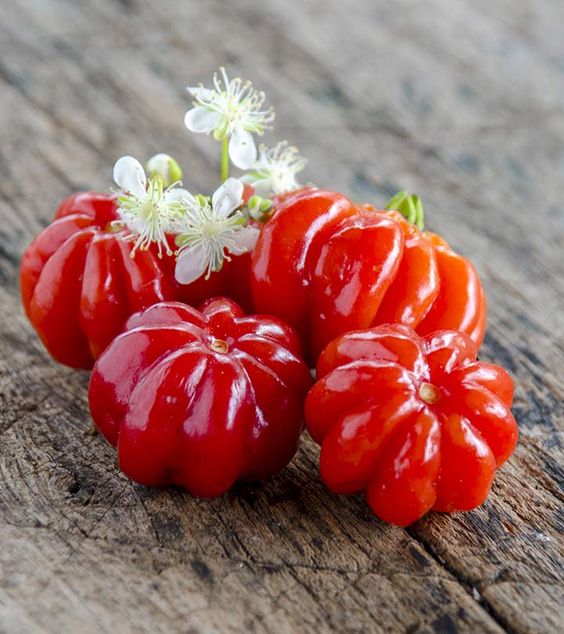
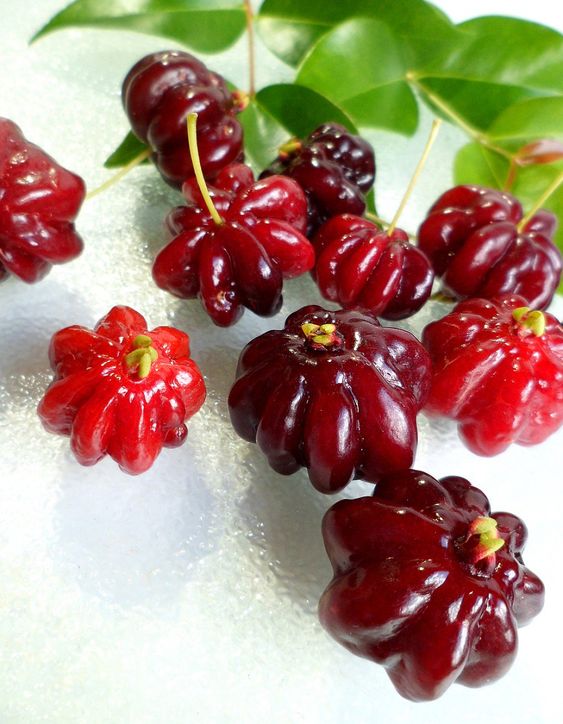
In the realm of tropical delights, the Surinam cherry (Eugenia uniflora) stands as a jewel, adorning landscapes with its vibrant colors and tempting flavors. Native to tropical regions, this petite fruit, also known as Pitanga or Brazilian cherry, embodies a unique combination of exotic elegance and delightful taste.

The Surinam cherry tree, with its glossy green leaves and slender branches, serves as a picturesque backdrop for the star of the show – the petite, lantern-shaped fruit. As it ripens, the Surinam cherry transforms from shades of green to hues of brilliant orange and red, creating a visual symphony that hints at the delectable experience within.
One of the most alluring aspects of Surinam cherries lies in their sweet and tangy flavor profile. The taste is a harmonious blend of tropical notes, with hints of sweetness reminiscent of traditional cherries and a subtle tartness that adds a refreshing twist. This dynamic flavor profile makes Surinam cherries a versatile ingredient, suitable for both sweet and savory culinary creations.

Surinam cherries have found their way into various culinary traditions, adding a burst of exotic flavor to an array of dishes. From jams and jellies that capture the essence of their sweetness to savory sauces that elevate seafood and meat dishes, the Surinam cherry’s culinary versatility knows no bounds. The fruit’s juice, with its vibrant red hue, is also a popular base for refreshing beverages and cocktails.
Beyond their culinary appeal, Surinam cherries boast a nutritional profile that adds to their allure. Packed with antioxidants, vitamins, and minerals, these petite fruits contribute to a healthy diet while satisfying the palate. The rich content of vitamin C and other beneficial compounds enhances their status as not just a delicious treat but a nutritious addition to one’s lifestyle.

The Surinam cherry, with its distinctive flavor and elegant appearance, has become a cherished ingredient in various cultures around the world. In addition to their culinary applications, the fruits are often enjoyed fresh, providing a burst of tropical sweetness with each bite. The act of plucking Surinam cherries from the tree becomes a sensory experience, as the aroma of the ripe fruit fills the air.

In gardens and landscapes, the Surinam cherry tree adds a touch of exotic charm. Its compact size and ornamental appeal make it a popular choice for both backyard orchards and decorative plantings. The evergreen foliage, fragrant blossoms, and colorful fruit contribute to its year-round visual appeal, creating a sense of tropical elegance in diverse climates.



As the world continues to embrace diverse and exotic flavors, the Surinam cherry stands as a testament to the richness found in nature’s orchards. With its sweet and tangy taste, vibrant hues, and nutritional benefits, the Surinam cherry invites enthusiasts to embark on a culinary journey that celebrates the beauty and flavors of the tropics.







